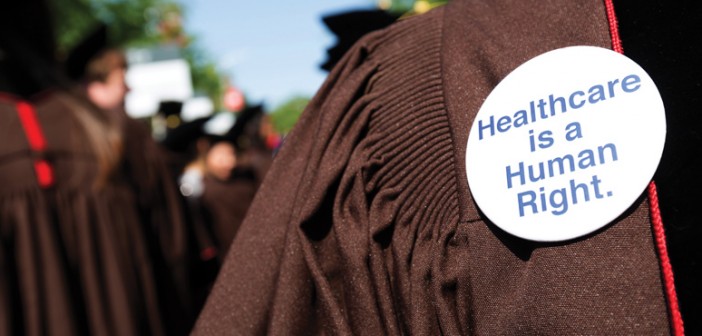The newly insured are returning to the fold.
The last few months have been filled with wonderful surprises. Old friends are returning to primary care. We have taken care of many of them since elementary school in our urban academic primary care clinic, and last saw them around their 19th birthdays, just before their medical insurance expired. I remember the 11th-hour calls for those appointments. Now these patients are in their early 20s and by and large doing very well, though I would hesitate to group them with the “Invincibles.” They are the ones who crossed over the minefield of adolescence in the inner city and made it safely to the other side. Their reward? Medical uninsurance.
Over the years, there has been the occasional medical report from an urgent care center or request for immunization records, but we haven’t seen these patients in person. We’ve continued to care for their younger siblings and parents and had assumed they’d gone on to other primary care settings. Almost no one has ever mentioned their lack of insurance, shame being one important reason for this secret. Across a generation of managed care I’ve learned not to take doctor switches too personally and hadn’t really focused on the medical whereabouts of these young adults even when I inquired about them. Until now. Now that they’re back.
There have been lots of exciting developments. As their doctor, I’m so proud. He’s passed 6 feet. She’s lost 40 pounds. He’s got a steady girlfriend, and they’re using reliable contraception! She’s swimming every day and dancing salsa on the weekends. He’s lifting weights and just ran a 5K. She stopped eating fast food and loves vegetables and fruit. He is openly gay and making wise health choices. So is she. That couple got married and have two adorable kids. They head to the playground every weekend.
A few patients have taken up smoking and want to quit. Others have rising BMIs. One may be drinking too much. Another wonders if daily marijuana use is a problem. One patient quit pot cold turkey and confessed that he’d missed all those teen appointments because he felt too embarrassed to show up stoned. None is in legal trouble.
Sure, I’m their doctor. But I also feel like some long-lost aunt. My compliments are genuine. There are the superficial ones: You’ve got a great sense of style. That is an amazing tattoo. Others are quite profound: You’re raising a child and will soon be a kindergarten teacher! You’re already a manager at that factory? You’re a medical assistant! You’re in college? You’re a barber! You’re working in a licensed day care? You’re a chef! You’re in the National Guard? You’re a dad!
Our visits all begin the same way. Big smiles. Bear hugs. I say: “It’s so wonderful to see you. How have you been? You look great.”
To a person they reply with comments like: I need a physical. My Pap is overdue. I have a list of things I want to ask you about. I haven’t been in because I didn’t have insurance. But now I do. The relief is palpable.
Call me indulgent or pie-in-the-sky. I believe health care is a human right. Just like food, water, housing, safety, heat, electricity, and legal documentation. I understand why others argue these are privileges and pass judgment on governments that provide these services to individuals who, whether able bodied or vulnerable, could shoulder more of the responsibility for securing the basics. I have my moments, too.
But over the years, patients have taught me about violence. And substance use. Missing fathers. Crime. Incarceration. Deportation. And sexual abuse hiding in families. These are the forces that shape physical and mental health and perpetuate poverty, school failure, hopelessness, and helplessness in our urban neighborhoods. My patients’ stories have left me less ready to pass judgment and more compelled to consider what we as a society and profession, and I as a primary care physician and human being, can do to heal these ills so that parents and children and families might move ahead into sunnier days.
The return of these young adults to medical care has been one ray of light. Against all odds, they have stayed in school or finished equivalency programs. They are in the workforce. By reporting on time and bringing home paychecks, they are heading toward the future. Reconnecting with them, one by one, and enjoying the shared pleasure of how well they are taking care of their lives, and now their health, has fueled my shame and outrage that, for all these years, our society has deprived so many people of the basic right of health care.
It’s time to let that go. In spite of all the snafus of the rollout and the political hullaballoo surrounding the Affordable Care Act, these patients and many, many others can once again access basic health care. Thank you, Obamacare. Welcome back, patients.
The author would like to thank patients JC and FV, as well as those whose life details have been altered to protect anonymity, for their help in preparing this manuscript.




